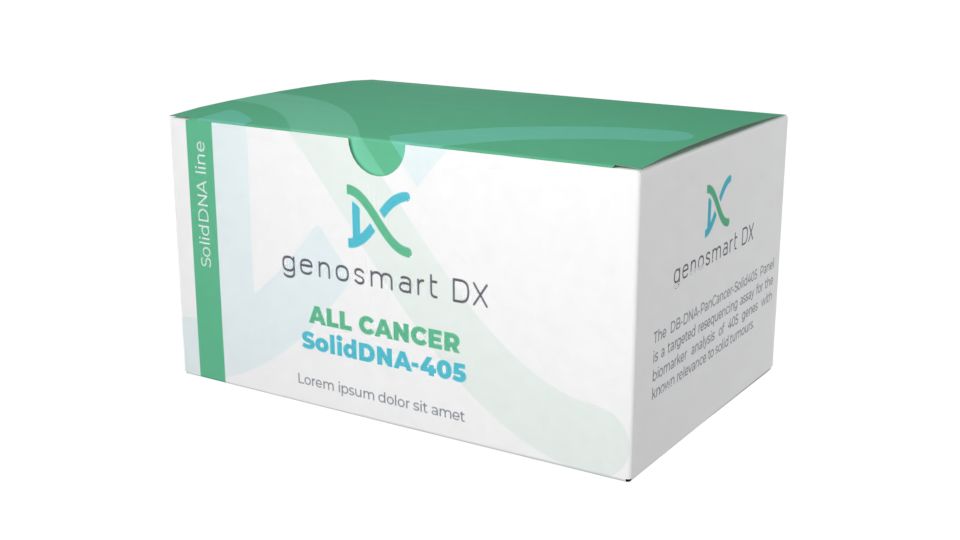genosmart DX All Cancer Germline-100

A comprehensive gene panel of hereditary cancer alterations
Useful for
The DB-DNA-PanCancer-Hereditary 100 Panel is a targeted resequencing assay for the biomarker analysis of 100 genes with known relevance to hereditary tumour formation and targeted therapeutic decisions.
Speciment type requirements
500 ng (min. 10 ng/ul) purified DNA from whole blood or 5 ml of whole blood in Lavender top (EDTA) tubes
Required information
DNA concentration, known mutations
Clinical interpretation
Hereditary cancer syndromes account for approximately 5-10% of all cancers. These cancers originate from the gastrointestinal tract, endocrine and neuroendocrine systems or from different organs like the lung, kidneys, liver, pancreas, skin, and eyes. Hereditary cancer is suspected when there are multiple relatives on the same side of the family with the same or related forms of cancer, cancer at an early age or multiple primary cancers in an individual. The most common inherited cancer syndromes are the hereditary breast and ovarian cancer syndrome, the Lynch syndrome (also known as hereditary non-polyposis colorectal cancer), the Li-Fraumeni syndrome, the PTEN hamartoma tumour syndrome, familial adenomatous polyposis, the Von-Hippel Lindau syndrome, and multiple endocrine neoplasia type 1 and type 2. Most of the hereditary cancer syndromes are inherited in an autosomal dominant manner, and the penetrance is high. Genetic testing is the most effective way to identify individuals with a genetic predisposition to developing cancer. This test enables personal cancer risk assessment, and inherited genetic variants can be taken into account when planning the treatment and the follow-up of both unaffected and affected persons. In most of the cases, cancer mortality can be significantly reduced in high-risk individuals by regular surveillance and preventive strategies.
Cautions
Test results should be interpreted in the context of clinical findings, family history, and other laboratory data. Errors in our interpretation of results may occur if information given is inaccurate or incomplete. We strongly recommend that patients undergoing predictive testing receive genetic counseling both prior to testing and after results are available. Technical Limitations: In some cases, DNA variants of undetermined significance may be identified. A negative (wild-type) result does not rule out the presence of a mutation or rearrangement (fusion) that may be present but below the limits of detection of this assay. Rare polymorphisms may be present that could lead to false-negative or false-positive results. This test does not detect the following: Complex inversions, Gene conversions, Balanced translocations, Repeat expansion disorders unless specifically mentioned, Non-coding variants deeper than ±20 base pairs from exon-intron boundaries unless otherwise indicated. This test may not reliably detect the following: Low-level mosaicism in nuclear genes, Stretches of mononucleotide repeats, Indels larger than 50 bp, Variants within pseudogene regions/duplicated segments.
NGS
If you have prepared your own libraries, but you do not want to invest to a next generation sequencer or you want short TAT with low cost, use our sequencing capacity
Bioinformatics
If you prepared and sequenced your samples, but want to have an accurate and in depth, fully annotated analysis with help in therapeutic decisions use our bioinformatics service

